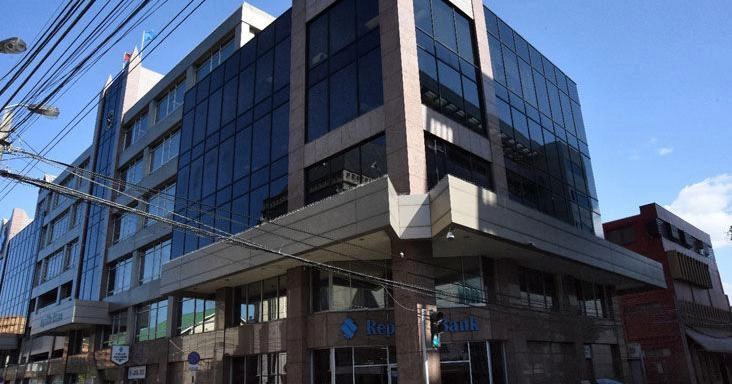Over the past week, public debate has intensified following comments by the Prime Minister about a particular real estate transaction involving Republic Bank financing.
While transparency in public life is important, the manner in which this issue has been raised risks doing unintended harm to something Trinidad and Tobago needs now more than everthe revival of business confidence.
Our economy, still feeling the aftershocks of the pandemic and global slowdowns, desperately needs investment and growth. One of the quickest ways to jump-start activity is through the construction sector.
When construction gets moving, it has a multiplier effectcreating jobs, stimulating demand in supporting industries, and building momentum across the economy.
For that to happen, we need a climate where investors feel they can come forward with proposals, discuss them openly with governmentthe owner of many strategic assetsand have those discussions treated with confidentiality and professionalism.
If businesspeople begin to fear that every approach will be aired publicly and politically weaponised, the likely result will be hesitation, delays, and missed opportunities.
The recent example given by the Prime Minister is particularly troubling because it involved land that holds significant economic potential. This parcelreclaimed at considerable taxpayer expensehas been sitting idle for over 25 years.
Reclaiming land is no small undertaking for a small economy; it involves major engineering works and significant public funds. Leaving it idle for decades represents a tremendous opportunity cost. Over that time, various proposals have surfaced for monetising it, but nothing has materialised. Any serious, credible proposal to turn an underutilised public asset into a productive economic contributor should be welcomed and carefully assessed, not ridiculed.
It is entirely reasonable to expect that such discussions would take place in an environment that encourages future business activity rather than discourages it.
not unusual, improper,
or inherently suspicious
We already have procurement legislation that sets out how government should handle such proposalswhether to negotiate directly or open the opportunity to public tender.
That is a policy decision for the government to make. But publicly ridiculing a private investor who wants to commit capital to a national project, and publicly criticising our leading financial institution for making a commercial decision in what it considers its best interest, is simply not the way to go.
The transaction describedwhere a businessperson purchases land, constructs a building, and obtains financing from the same bank that will occupy the buildingis not unusual, improper, or inherently suspicious.
In fact, it is a well-recognised model known internationally as BOLT (Build, Operate, Lease, Transfer), along with variations that have been successfully used by both the public and private sectors for decades.
Such arrangements have been employed for office buildings, hotels, and government facilities throughout the Caribbean and internationally.
These arrangements can be financially efficient, sometimes for tax reasons, and are often preferred by companies that choose to lease rather than own their premises.
Republic Bank, one of the Caribbeans most respected financial institutions, has the expertise, governance structures, and track record to make informed financing decisions in its own best interestdecisions that have consistently generated strong shareholder returns.
Unless additional facts emerge, there is nothing inherently wrong with the structure described.
It is important to state clearly that my concern here is not about defending any individual transaction or businessperson.
It is about the principle. In a country as small as ours, we cannot afford to signalintentionally or otherwisethat certain groups of investors are unwelcome because of their ethnicity, past political associations, or previous dealings with former administrations.
History shows that under both the Peoples Partnership and the PNM, projects have been awarded to contractors with links to the other sideoften because they offered the most competitive price or had the necessary expertise.
That is how it should be. If the project is valuable, profitable, and legal, the political history of the investor should not disqualify them.
There is also a broader risk here. If boards of state-controlled entitieswhich government has the power to changebegin to feel pressure to reject legitimate business proposals from individuals associated with prior administrations, we will end up shrinking our pool of potential investors.
All should be welcome to invest
This will slow economic recovery at the very moment we need to accelerate it. Furthermore, reputational damage is not confined to our borders; foreign investors watch these signals closely.
A perception that business proposals will be politicised or publicly attacked can deter international capital, which is highly mobile and can easily find opportunities elsewhere.
Trinidad and Tobago is too small, and our economic challenges too pressing, for us to indulge in selective gatekeeping.
Transparency is essential, but it should be applied in a way that strengthensnot erodesinvestor confidence.
If we are serious about turning around this sluggish economy, we must send a clear and consistent message: that all law-abiding, legitimate businesspeopleregardless of background or past affiliationsare welcome to invest and help build our nations future.
Our path to recovery requires that the government, private sector, and civil society pull together with a shared objective: to get projects moving, to create jobs, and to put idle assets to productive use.
Capital will go where it is welcomed, respected, and protected. We should ensure that place is here.
The author is a former executive director of the Inter-American Development Bank (IDB) and Republic Bank Ltd, and a former managing director of ANSA Bank Ltd. He is currently engaged in financial and policy-related consultancy across the Caribbean and Africa.




